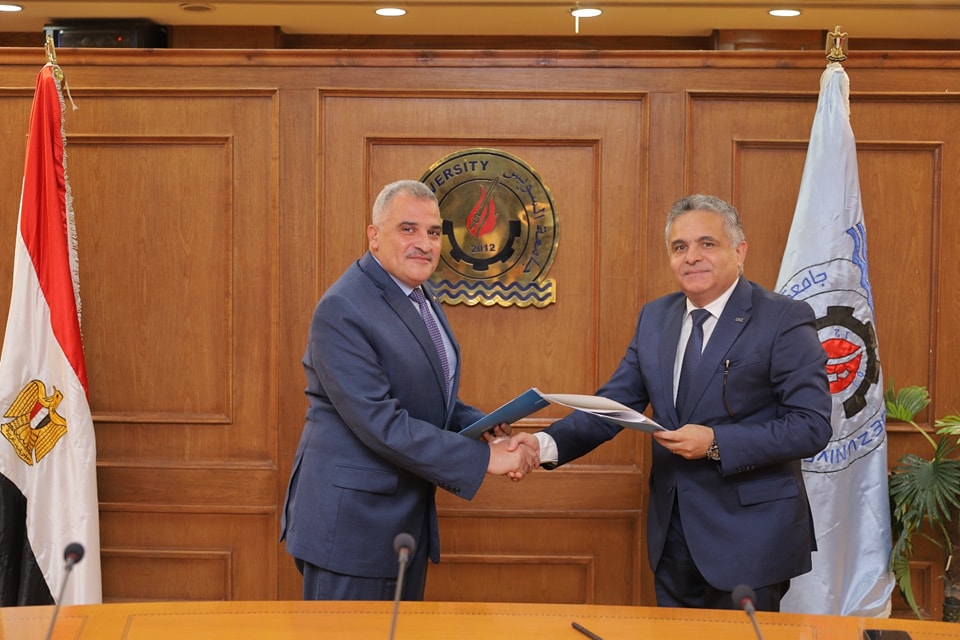As part of the Egyptian President Initiative of Human Development "A New Beginning for Human Construction", in his office, this afternoon, Prof. Dr. Ashraf Hnijal, The SU President, received General Staff of War Al-Husseini Farhat Mohamed, Executive Director of the Lakes and Fish Resources Protection and Development Agency, in the presence of Prof. Dr. Osama Kaddour, dean of the Faculty of Fish Resources, on the margins of the signing of a memorandum of understanding between the Suez University represented by the Faculty of Fish Resources and The Lakes and Fish Resources Protection and Development Agency.
The SU President stated that this protocol aims to maximize the use of laboratory potential while facilitating the conduct of analysis and the use of devices for both parties and the exchange of experiences in scientific research in the joint supervision of scientific theses and research.
Hnijal also pointed out that this cooperation seeks to hold periodic meetings with all relevant societal parties, determine what can be done by both sides and civil society, and create a clear mechanism for cooperation.
In addition, it aims to organize and hold joint international scientific conferences, as well as holding seminars, and workshops to discuss bilateral and community problems, besides the establishment of distinguished study programs for bachelor and postgraduate students.
For his part, the Dean of the SU Faculty of Fish Resources has paid tribute to the University president for his continued support in achieving the faculty's greatest benefit in the academic, research, or service fields.
Kaddur then explained that such cooperation was not the product of the moment. Indeed, mutual visits have been made between the parties to indicate areas of possible cooperation. Cooperation will work as effective joint training areas to qualify university students for the labor market as well as the workers in the same specialization in the fields of fish farming and aquatic environment protection, water treatment, ways to mitigate the effects of climate change, fish feeding, processing, packaging, recycling of fish residues, correct fish circulation methods, and early detection of fish diseases.

